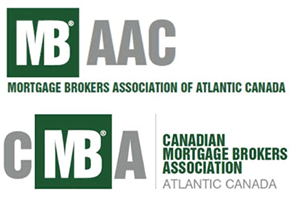
Atlantic Canada Mortgage Market Update: What the Latest BoC Rate Cut Means for You
March 20, 2025 | Posted by: Keith Leighton

Atlantic Canada Mortgage Market Update:
What the Latest BoC Rate Cut Means for You
The Bank of Canada (BoC) has once again reduced its policy rate by 0.25%, bringing its benchmark rate to 2.75%. For homeowners and potential buyers in Atlantic Canada, this decision carries important implications. Whether you're already holding a mortgage or considering entering the market, understanding these changes is crucial. Let’s break it down.
How This Rate Cut Affects Mortgage Borrowers
For variable-rate mortgage holders, this is welcome news. Your interest rates will decrease by the same 0.25%, leading to lower monthly payments. This reduction will provide some financial relief and increased cash flow for homeowners who have been managing rising costs. If you have a fixed-rate mortgage, however, this cut won’t immediately impact your payments, but it may influence your renewal options when the time comes.
The Economic Backdrop: Why Did the BoC Cut Rates?
At the beginning of 2024, the Canadian economy was performing stronger than expected, with inflation hovering around the BoC’s 2% target and robust GDP growth. However, the recent escalation of the U.S.-Canada trade war has caused economic uncertainty. The BoC is now responding to these shocks, aiming to stimulate the economy while also managing inflation pressures.
Striking a Balance: Inflation vs. Economic Growth
The challenge for the BoC is balancing the need to support economic growth with the risk of inflationary pressures. The trade conflict has already led to higher consumer prices due to tariffs and a weaker Canadian dollar. While economic growth concerns suggest further rate cuts could be on the horizon, inflation risks might limit how aggressively the BoC can reduce rates.
Will Lower Rates Boost the Atlantic Canada Housing Market?
Historically, lower interest rates have fueled rising home prices. However, today’s economic outlook is clouded by job losses in high-income sectors like manufacturing. This could limit the extent to which home prices appreciate in Atlantic Canada. While demand may increase due to lower borrowing costs, the uncertainty surrounding employment could temper market activity.
Mortgage Strategy: Fixed or Variable?
Currently, fixed and variable mortgage rates are relatively similar. However, if the BoC continues its rate-cutting trajectory, variable rates could become the more cost-effective option over a five-year term. That said, variable rates come with the risk of fluctuating payments. If stability is a priority, a three- to five-year fixed-rate mortgage may be the better choice.
Shorter-term fixed rates (one to two years) remain expensive and are not as attractive compared to their longer-term counterparts. Borrowers should weigh their risk tolerance and financial situation before making a decision.
Looking Ahead
Bond yields, which influence fixed mortgage rates, rose slightly following the BoC’s announcement—an unexpected move given the rate cut. Investors are responding to the Bank’s cautionary stance on inflation, signaling that future rate reductions may not be guaranteed.
For now, variable-rate mortgage holders will see immediate savings, while fixed-rate borrowers can expect relatively stable rates. However, as the economic landscape evolves, further BoC action remains a possibility.
Final Thoughts
If you’re in the market for a new mortgage or looking to renew, now is the time to explore your options. Consulting with an experienced DLC Ideal Mortgage broker can help you with these shifting conditions and secure the best possible rate.
Stay informed, stay prepared, and make the most of today’s mortgage market in Atlantic Canada with the expertise of a DLC Ideal Mortgage broker.
